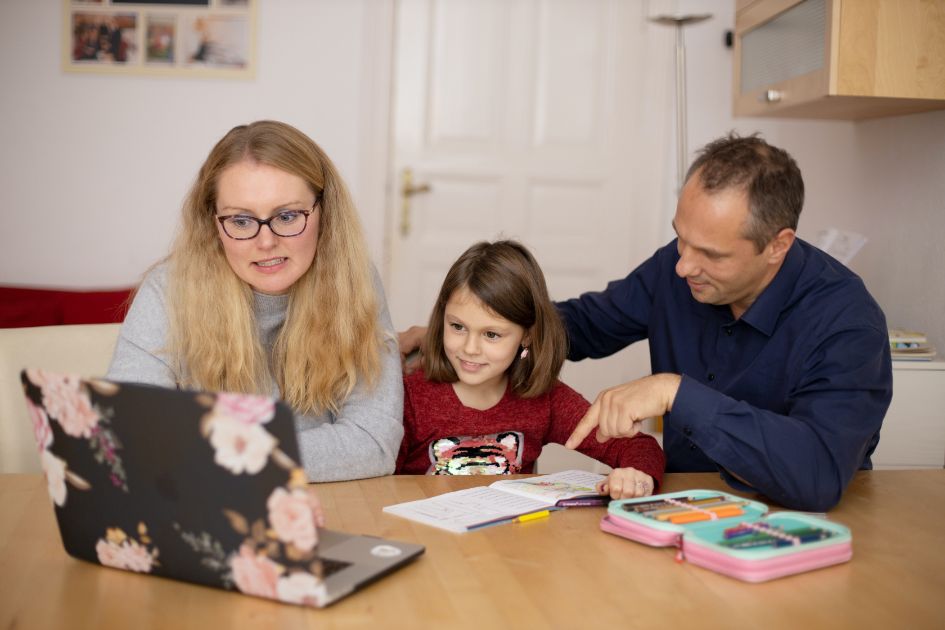
Why Do People Choose Homeschooling?
The last ten years have seen an increase in homeschooling in the US.
The number of students who are homeschooled has doubled over the past ten years, according to research in education and the US government. Overall, if the nation’s homeschooling growth rate keeps up—and some predict it will pick up speed—the number of students in the U.S. will surpass 2 million by 2018.
Therefore, why do parents decide to homeschool their kids? Flexibility, regional issues, etc. can prompt people to choose to homeschool. Read and you can find more reasons and advantages of homeschooling.
What Does Choosing Homeschool Mean?
Parents may decide to homeschool their school-age children if they do not want to enroll them in local public or private schools or if they do so occasionally. Online charter schools do not, in the opinion of many homeschooling parents, fit the definition of “homeschooling.”
By sifting through, combining, and customizing various homeschool curricula available on the market, homeschooling parents create their own educational programs. Most of the time, parents examine these curricula on their own and make necessary modifications until they find the program that works best for their particular child. However, they are not forced to act independently. A “co-op” is a term used to describe the larger group of homeschooling families that many homeschooling families belong to.
Homeschool co-ops are groups of families of homeschooled kids working cooperatively to achieve common goals. Coops can plan social gatherings, volunteer opportunities, and field trips for homeschooled students.
Advantages Of Homeschooling
Homeschooling has a number of advantages for both kids and parents.
Effective, Individualised Learning
You can tailor your child’s education to suit their interests, needs, aptitude, and learning style if you homeschool them, which is a significant advantage.
This might entail allowing them to exercise more frequently outside, allowing them to learn more about a topic that interests them, or allowing them to take the day off if they’re sick.
Additionally, when necessary, subjects that they are less comfortable with can take up more of the day. Teachers in regular schools do not have enough time to give each student this attention. While others struggle, others grow bored and irritated.
Less time is wasted when teaching one child at a time because the child receives much more attention. In fact, it’s so effective that some parents claim their children learn as much as they would in a whole day in just two hours.

Achievement Without Stress
You don’t have to teach exclusively to the tests, even if you are following the curriculum, which you must do if you want to enroll your child in GCSE or A-Level exams. There won’t be ongoing mock exams and evaluations for your child.
In addition to what they must learn, they will have time to learn the things they want to. They might be less stressed and more unlikely to burn out as a result.
Flexibility For Your Whole Family
You could relocate as frequently as you need to if you wanted to homeschool from anywhere at any time. This is why it frequently appeals to those who enjoy travel, such as families with members of the armed forces.
You can plan it around your work schedule and appointments, and take vacation time outside of the busiest times. Homeschooling enables families to spend more time together when a member of the family or child is ill.
The fact that you and your kids can sleep in each morning is another benefit of not having to run your kids to school. Since teenagers’ biological clocks change during this stage of life, this is especially advantageous for them.
Social Development
Your kids can socially mature in a different way if you homeschool them. You may, for instance, have close ties to your family and a lot of the same values. They won’t be as reliant on their peers and won’t be exposed to drugs, alcohol, sexual activity, or bullying as young.
They can be themselves, however, they might appear, without feeling pressure to conform.
Additionally, your child can continue to participate in the neighborhood and interact with people of all ages and backgrounds. If you want to interact with other families who are in the same situation, you might join local homeschooling groups.
In order to teach the children most effectively, parents occasionally share their expertise in these groups. Additionally, your child might participate in neighborhood activities like scouting, sports teams, or volunteering at civic functions.
Continuing Education For Parents
Educating your children at home benefits you as well, so it’s not just about your kids. Whether it’s a foreign language, algebra, or history, by instructing your child, you might pick up new information.
You can meaningfully share with your child your passions and areas of expertise as well. You could decide to collaborate on a project or take trips you both enjoy. Some people discover that homeschooling transforms them positively, leading to personal growth and fulfillment.
Safety
Some people list “safety” as one of the benefits of homeschooling during the current pandemic. Some parents believe homeschooling is currently a superior choice to traditional schooling due to the high case numbers and concerns about vulnerable family members.
Homeschooling “temporarily” may turn out to be a much bigger commitment than you had anticipated due to the uncertainty surrounding how long the pandemic will last and the lack of assurance regarding a place in a school when you want your child to return. Because of this, you must consider all options before choosing a course of action.
The reasons why homeschooling requires such a significant time commitment and its drawbacks are discussed in the section that follows.
Disadvantages Of Homeschooling
You must weigh the advantages of homeschooling against its drawbacks if you want to make a well-informed choice.

Major Commitment
You are taking on full responsibility for your child’s education by choosing to homeschool. To help them reach their full potential, you must be able to provide the depth and breadth of education they need.
Even if you hire tutors for some of the lessons, you still need to put in the time and effort to make sure they are instructing children effectively and are appropriate to have access to.
You will need to gather references as part of this and verify that they have a DBS certificate. Additionally, homeschooling entails preparing the student for any exams they will take and transporting them to outside testing locations. Exam centers might be far from your home and this necessitates a lot of extra work.
You are essentially taking on the roles of a teacher and an administrator in addition to your parentage.
Along with everything else you already do, you also need to organize trips, plan lessons, coordinate activities with other parents and make sure you comply with local authority regulations.
You might spend the entire day with your child every day, which means you won’t be able to do the things you usually do while they are at school. You will spend a lot of time with your child during this time. This might make you feel stressed out and worn out.
Parents who homeschool their children also have limited resources for assistance. However, this is at the discretion of the local authorities. Some of them run forums or support groups.
Although there are many resources available online, they might not be as useful as you had hoped because availability does not always equate to quality.
Cost
The biggest expense of homeschooling is giving up your full-time job in order to do it. Your lifestyle will be impacted by this; you’ll need to be more adept at budgeting than you currently are. Given how much more time you spend at home, your energy bill will probably go up as well.
In addition, you will need to purchase a computer, stationery, and textbooks. You will probably also be responsible for paying for your child’s participation in extracurricular activities like sports or field trips.
Exams are a particularly notable expense because you will have to pay for your child to take them, not the school. The cost of each GCSE is approximately £36 or more if you pay the exam board directly, and the cost of each A-Level is at least £50 (or much more if they select a challenging subject).
Additionally, you must pay the exam center for allowing your child to take the exam there; this fee averages around £40 per exam but may reach £100 depending on the center.
Local governments may, at their discretion, give money to families who choose to educate their children at home. Any outside assistance that is given to you cannot be relied upon.
Loss Of Experiences
Although we noted in the “advantages” section that homeschooled children still develop socially, they inevitably miss out on some interaction by spending more time at home. They might not be in touch with their peers, have fewer friends, and have less experience interacting with people from various backgrounds.
They might have a very limited and biased perspective on the world. In the worst cases, they might be brought up to be intolerant and ignorant, with little understanding of societal norms. In the future, this might work against them.
Homeschooled children also miss out on a variety of other opportunities. Schools provide students with the opportunity to participate in sports leagues, gain work experience, and receive recognition and rewards (for instance, during assemblies).
Those who receive their education at home may feel left out because they are unable to participate in these experiences.
School-home Imbalance
The inability to truly distinguish between home and school is a natural drawback of homeschooling. Intense self-discipline, concentration, and planning are necessary in order to attempt to maintain structure and balance. Daily distractions can easily interfere with schoolwork. You might also fall into a bad routine that is ineffective.
As a result, you might fail to do what is required of you and give your child a quality education. You’ll need to come up with ways to stop this, like working on your schoolwork in a special room.
You could also enforce strict no-interruptions policies and set regular “school” hours. However, you can’t always avoid distractions, and depending on your living situation, these methods might not be effective.
Further Education Difficulties
Even though homeschooled students may be capable of attending college, their parents’ lack of knowledge about the application process may make it difficult for them. Staff members at your school are able to provide references for UCAS and are familiar with how to complete the forms.
Parents, on the other hand, are frequently inexperienced and unsure of where to turn for assistance. You could hire specialized admissions tutors to assist, but doing so will cost you more money.
Additionally, while homeschooling may be simple in the early years, by the A-Level, parents may find it difficult to give their children the resources and support they need to do well.
Planning for subjects that require practical assessments can be particularly challenging, especially if you know little to nothing about the course your child is taking.

In fact, homeschooling might restrict your child’s A-Level options, which could have an impact on their future career. This is so because many courses weren’t made with children who were homeschooled in mind.
Stretched Capacity Of Local Authorities
Every homeschooler must be monitored by the local authorities. Although you may find the inspections and assessments to be stressful, the authorities are also finding it difficult to keep in touch with the growing number of home-educated children. As a result, they are finding it difficult to conduct inspections and assessments.
As a result, there is less support available for parents and caregivers and less ability to protect children; any potential harm to a child may go unnoticed in the absence of trained school personnel who can recognize warning signs.
Thus, homeschooling affects your child’s safety but also places an undue burden on your local government.
What Prompts Parents To Make The Decision?
Quality or Style of Education
After trying traditional schools and finding issues with the curricula, many parents decide to pursue homeschooling.
Parents frequently express dissatisfaction with the quality of education being offered because they believe the system is deficient in certain areas that they view as crucial. This perception might be caused by shrinking state education budgets, rising student enrollment, and an overall decline in educational quality.
Therefore, some parents decide to homeschool their children in order to have more control over what they are learning and the caliber of the instruction.
Religious Reasons
One of the most frequent reasons for homeschooling is religion.
Some families opt to home-school their children because state schools don’t always explicitly include religious ideologies and viewpoints in their curricula.
Disabilities And Exceptional Needs
While it is frequently necessary for children with learning disabilities or health/medical conditions to participate in specialized programs tailored to their needs, local schools may not always be able to meet all of the children’s requirements.
In order to save time and get a better education, parents who feel that their child’s education isn’t meeting their needs may decide to homeschool their children. Children who are homeschooled can follow curricula that are tailored to their individual needs.
Relocations And Life Circumstances
Another reason some families choose to homeschool their children is that they move around a lot rather than for educational or child-specific reasons. Military families and families whose members hold diplomatic positions within the government are two examples, both of which must relocate frequently.
Some of these families believe that homeschooling should be a regular part of their lives rather than having their kids switch schools frequently, which would disrupt their academic progress. In other words, despite other changes, the school doesn’t change.
Multifaceted Children
Sometimes, students themselves have unusual life circumstances rather than homeschooling parents. Some high school students juggle several extracurricular activities due to their incredibly busy schedules. Typically, these are young people who are also actors or athletes.
In that case, homeschooling better fits the child’s life than a regular school schedule with set timings ever could.
Overcrowded Schools
For parents who decide to homeschool their children, overcrowded schools can be a major deciding factor in some areas. For instance, state schools are likely to have a large number of students in each class if you live in a big city or a high-density area. This means that each student will receive less one-on-one instruction.
Homeschooling keeps kids out of overcrowded classrooms that might potentially impede their learning. As an alternative, the student receives individualized instruction along with extra lessons from either their parents or a trained tutor.
Commuting Issues
The location of a facility can also affect accessibility, building on the prior point. For instance, parents who live in rural areas may think about homeschooling their children in order to relieve the stress of the commute to and from school while also saving time and effort.
The weather in some places is particularly bad, which again makes travel difficult. Due to weather, safety concerns, or other factors, some parents decide to homeschool their children.
Shielding Children
It’s not uncommon for parents to want to shield their kids from the outside world for as long as they can, shielding them from experiencing heartbreak, disappointment, pain, bullying, failure, and other negative things.
Some parents want to protect their kids from reality for as long as they can, including any potentially hostile school communities. Instead, they decide to let their kids learn in the convenience of their own homes.
Flexibility
Our time is one of adaptability and customized experiences. There is no doubt that convenience and flexibility are both provided by homeschooling for kids and their families.
Through homeschooling, parents can modify their child’s academic schedules to fit their personal needs. It means they can schedule lessons around holidays, days out, and family visits, and parents can encourage their children to work when it best suits them – for some that is the morning, and for others the afternoon, or even after dinner
A lot of families want homeschooling because it provides the flexibility they need to strike a healthy balance between their children’s education and their personal obligations.

Socialization And Groups
There is a myth that homeschooled children lack social and communication skills and are awkward or shy. That rumor has been disproved, I see.
Homeschooled students are just as articulate, confident, and communicative as other schoolchildren. Each child, family, and learning style are different from one another.
Furthermore, parents who homeschool their children don’t necessarily cut them off from the outside world. Instead, they give them “tailored” social interactions that not only uphold their values but also promote their welfare and safety.
Church organizations, community education organizations (co-ops), home-school support groups, and activities for home-schooled students are all still around today. Students can spend as much time socializing as they want because there are many options available.
Bullying
In line with the preceding point, many parents decide to homeschool their children due to bullying and other behavioral issues that their kids have experienced at school.
It’s difficult for a parent to accept that their child is being bullied and that it isn’t much you can do to stop it. Because they are embarrassed or ashamed to admit that they have been teased, verbally abused, or even worse, kids will sometimes hide bullying from their parents. Additionally, some parents might believe that teachers don’t address bullying in the way they would like.
Homeschooling makes sense in these situations because there is no chance of psychological or physical suffering.
Unique And Effective Learning Styles
There’s really no “one-size-fits-all” approach to education, and that can be the cause of problems. Because they are interested in science, some kids, for instance, find it simple to absorb information; others, less so. Some people prefer reading books, while others favor watching videos, and so on.
Parents do not have the option of selecting the curriculum for their children in a traditional state school, nor can they direct the teachers to accommodate each student’s needs. However, since they are in charge, parents can take care of both of these things for their children who are homeschooled.
Therefore, parents select the best form of academic instruction for their child, whether it be practical experiments with friends, video-based programs, literature-based instruction, involvement in volunteer work, or other teaching modalities that have tangible advantages.
Naturally, these elements contribute to productive learning environments where kids are constantly encouraged to expand their knowledge and learn more easily, leading to the best outcomes.
A Child’s Education That Lives On
Parents who homeschool their children vouch for the experience and hold it in higher regard than they do the public education system. The main advantage cited by all parents who choose this course of action is that it is an experience that endures even after their children depart for college.
What’s more, the majority of parents who chose to home educate their children say the experience improved their family ties.
It benefits everyone when a parent teaches their child. Nobody loves their children more than their parents, and children who are homeschooled also learn valuable lessons about how to interact with others and how to live a fulfilling life.
Is Homeschooling The Right Option For My Child?
It’s difficult to decide if homeschooling is the best option for your child. You need to think about:
- reasons for homeschooling your children. Is it because it would be in their best interests to do so?
- what your child thinks of the concept. They should be on board with it because they will be the ones it will affect the most.
- if you can properly educate your child and have the time, means, and ability to do so. Consider this in all sincerity.
- If the environment, space, and noise levels in your home are appropriate. Do you have a setup that allows you to work for hours while sitting comfortably and without interruptions?
- How others are able to support you as a parent? Homeschooling will occasionally be challenging, and you’ll require assistance. Can you provide a source from which you can guarantee this support?
- What would happen if you couldn’t teach your child for a period of time? You must have a backup strategy in place before you begin. You couldn’t just stop attending classes if you were sick for a while because your child would be unlawfully absent from school. If something were to happen, who would take your place as a teacher?
- Whether you can provide the social, physical, and cultural experiences to help your child develop. You need to think creatively and actively involve your child in community activities. If you homeschool, you’ll need to work for these opportunities; they won’t just present themselves.
- long-term goals you have for your child’s education. Will they be homeschooled indefinitely or just for a short period of time? To better prepare your child for the future, you may want to consider these things as you teach them.
You should also consider the advantages and disadvantages of homeschooling that we have outlined in this article, and weigh up which is greater for your individual child. Homeschooling can benefit some families while hurting others; it all depends on the circumstances, and only your family knows if it will work for you.
How Do Homeschooled Children Turn Out? Will They Be Behind Their Public-Educated Peers?
Despite myths about homeschooled children, many families decide to teach their children at home. There are false beliefs about how social and academic development occurs in homeschooled children. Why do people homeschool if their children will fall behind academically? If homeschooled children develop into “weird” people, why do they still homeschool?
Homeschool students, on average, score higher on the SAT, ACT, and standardized tests than students who participate in institutional education, according to the National Home Education Research Institute.
While homeschooled children’s experiences may look different, according to NHERI, children who are homeschooled are more likely than students who attend public schools to engage in community-based volunteer work as adults. They also present data showing that adults who were homeschooled are more politically tolerant and more likely to vote than their peers who received their education in a traditional setting.
How Can Parents Prepare Their Homeschooled Children For The Twenty-first Century?
The classroom of 2021 and the classroom of 1995 are very different from one another. The textbook has evolved into an iPad. We load debit cards with lunch money. Advanced AP classes, computer-aided drafting, and computer programming are examples of elective courses. Physics, biology, and chemistry are now inquiry-based and practical subjects.
When parents lack a modern teaching degree, how can they possibly expect their children to stay current on these topics at home? The easy solution is to depend on professionals. It can be beneficial to enlist the aid of professionals to build certain aspects of our child’s education, just as we would if we wanted to add on to our home.
If parents are unable to teach everything, why do they homeschool? Even qualified public school teachers are unable to teach everything. Herein lies the value of Futuclass. Children who are homeschooled can learn physics, chemistry, and biology in their own homes without the expense of a lab! One of the most frequently cited benefits of homeschooling is safety.
Get the most recent news on our expanding collection of virtual reality lessons for families who homeschool by subscribing to Futuclass’ newsletter.
Different Approaches To Homeschooling
According to a recent report to the NSW Parliament, there are 3 main approaches to homeschooling:
Structured Learning Environment
Families in this category adhere closely to a curriculum, and learning is organized in a manner akin to a classroom.
Informal Learning Environment
This strategy may involve families using textbooks, but their approach is less regimented.
Unschoolers/natural Learners
There is absolutely no structured learning involved in this method. This is due to the fact that “unschooling” parents hold the belief that the best learning occurs when parents support their child’s interests and make the most of the learning opportunities that each day presents.


